I struggled for a long time, then I figured, what if I try with a different server?
That helped. I took echo_compressed/server.py from Autobahn:
wget 'https://github.com/crossbario/autobahn-python/raw/master/examples/twisted/websocket/echo_compressed/server.py'
virtualenv venv && . venv/bin/activate && pip install autobahn twisted
python server.py
That starts a WS server on port 9000. It's not using SSL though, so I disabled that in the code (see #ifdef SSL below).
Now the key is to set the permessage_deflate extension option before WS handshake:
websocket::permessage_deflate opt;
opt.client_enable = true; // for clients
opt.server_enable = true; // for servers
s.set_option(opt);
Also noted that some servers require the port name be present in the Host header when not running on standard ports:
s.handshake(host + ":" + port, path);
Now reading works just fine and deflates as you'd expect, e.g. write it to response.txt:
beast::multi_buffer buffer;
s.read(buffer);
{
std::ofstream ofs("response.txt", std::ios::binary);
std::copy(
net::buffers_begin(buffer.data()),
net::buffers_end(buffer.data()),
std::ostreambuf_iterator<char>(ofs));
}
Or, when replacing the multi_buffer with an Asio streambuf, it's easy to just stream it:
net::streambuf buffer;
s.read(buffer);
std::cout << &buffer;
Proof That It Was Deflating
Inspecting the traffic with tcpdump/Wireshark shows this. Also, the Autobahn logging confirms it:
2020-06-22 02:12:05+0200 [-] Log opened.
2020-06-22 02:12:05+0200 [-] WebSocketServerFactory starting on 9000
2020-06-22 02:12:05+0200 [-] Starting factory <autobahn.twisted.websocket.WebSocketServerFactory object at 0x7f7af3fa5710>
2020-06-22 02:12:05+0200 [-] Site starting on 8080
2020-06-22 02:12:05+0200 [-] Starting factory <twisted.web.server.Site instance at 0x7f7af3850910>
2020-06-22 02:12:11+0200 [-] WebSocket connection request by tcp4:127.0.0.1:48658
2020-06-22 02:12:11+0200 [-] WebSocket extensions in use: [PerMessageDeflate(is_server = True, server_no_context_takeover = False, client_no_context_takeover = False, server_max_window_bits = 15, client_max_window_bits = 15, mem_level = 8)]
The Problem With That Server (real.okex.com)
I don't know what about it, really, but it seems that server is not sending standard responses. Perhaps someone else can tell. Writing the responses to a file did NOT result in a file that looks like it is zlib compressed.
Other tools tried ALSO fail to decode the data:
zlib-flate -uncompress < response.txt
Same with a python oneliner:
python -c 'import zlib; import sys; sys.stdout.write(zlib.decompress(sys.stdin.read()))' < response.txt
Full Listing
As I tested it with:
#include <boost/asio/ip/tcp.hpp>
#include <boost/asio/ssl.hpp>
#include <boost/asio.hpp>
#include <boost/beast.hpp>
#include <boost/beast/websocket.hpp>
#include <boost/beast/websocket/ssl.hpp>
#include <iostream>
#include <string>
#include <fstream>
namespace net = boost::asio;
namespace ssl = net::ssl;
namespace beast = boost::beast;
namespace http = beast::http;
namespace websocket = beast::websocket;
using tcp = net::ip::tcp;
//#define SSL
#ifdef SSL
using stream_t = websocket::stream<ssl::stream<tcp::socket>>;
#else
using stream_t = websocket::stream<tcp::socket/*, true*/>;
#endif
int main(int argc, char** argv) {
if (argc<4) {
std::cerr << "Usage: " << argv[0] << " host port path\n";
return 1;
}
std::string host = argc>=2? argv[1] : "real.okex.com";
auto const port = argc>=3? argv[2] : "8443";
auto const path = argc>=3? argv[3] : "/ws/v3";
net::io_context ioc;
ssl::context ctx{ ssl::context::sslv23 };
tcp::resolver resolver{ ioc };
#ifdef SSL
stream_t s{ ioc, ctx };
#else
stream_t s{ ioc };
#endif
ctx.set_verify_mode(ssl::verify_none);
tcp::resolver::results_type results = resolver.resolve(host, port);
net::connect(
beast::get_lowest_layer(s),
//s.next_layer().next_layer(),
results.begin());
#ifdef SSL
// SSL handshake
s.next_layer().handshake(ssl::stream_base::client);
#endif
// websocket handshake
websocket::permessage_deflate opt;
opt.client_enable = true; // for clients
opt.server_enable = true; // for servers
s.set_option(opt);
s.handshake(host + ":" + port, path);
std::cout << "connected" << std::endl;
// send request to the websocket
s.write(net::buffer("{'op':'subscribe', 'args':['spot/ticker:ETH-USDT']}"));
{
net::streambuf buffer;
s.read(buffer);
std::cout << &buffer << std::endl;
}
}
Then I ran with

